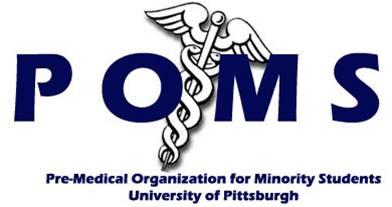

special advice for sophomores
|
The poor sophomore – no longer a new student, and not quite an applicant, the sophomore is often
overlooked in the world of pre-med advising. Well, not anymore! Sophomores, this section is for
you!
All kidding aside, there are some important things you should be doing during your sophomore year. In addition to continuing to take courses in the required sciences and earning good grades, this is the year when you should begin to VOLUNTEER. It is through volunteering that you demonstrate to the medical schools that you have a realistic idea of what medicine is (and is not); volunteering also allows you to become familiar with the hospital environment and to develop your communication skills with patients. Because the University of Pittsburgh is close to so many hospitals, opportunities abound and are easily accessible. Most hospitals will allow you to choose the unit in which you volunteer – you may want to spend some time in the Emergency Room or the Operating Room, in addition to working in one of the general Medical-Surgical units. Regardless of where you choose to volunteer, be sure that you spend some quality time interacting with patients. This will not only give you the opportunity to develop your communication skills, but will also give you exposure to a variety of diseases and disorders. There is not a “required” number of hours that you must spend volunteering, but it’s a good idea to spend at least 3 to 4 hours per week for a couple of years in the hospital. In addition to volunteer work, you may also want to gain some experience by participating in RESEARCH. Although designing and implementing your own research project is a very valuable experience, you will probably need to start out by working in someone else’s lab. This is where it’s helpful to know your faculty – many professors are not only teachers, but also researchers and have their own labs where they are carrying out their own projects. Talk to your professors to see if they need help in their labs – many of them do, and some of their student positions are paid. Also check out this website: www.pitt.edu/urop. The UROP site was designed to highlight undergraduate research opportunities and links to many of the academic departments that have projects underway. If you have a special research interest in the health sciences, you may also want to log on to www.health.pitt.edu – the webpage for all of the schools of the health sciences here at Pitt. This page has a great search engine that will allow you to search for faculty by department or by area of interest. Also take some time during your sophomore year to assess where you are in the application process: are you doing everything that you can to make yourself a competitive candidate? How does your QPA look? Do you have a plan that will allow you to complete all of your required sciences by the end of your junior year? Have you been volunteering? Have you been making the most of your educational experience? These are important questions to ask yourself. Also, this may be a good time to make an appointment with the Health Professions Consultant. In your appointment, you will have the opportunity to ask any questions you may have, and will get a good idea as to what you still have to do to prepare for the application process. |
||
 Home Executive Board Semester Meetings Premed Reqs Freshman Year Sophomore Year Junior Year The MCAT Pre-Professional Health Committee The Interview FAQS |
